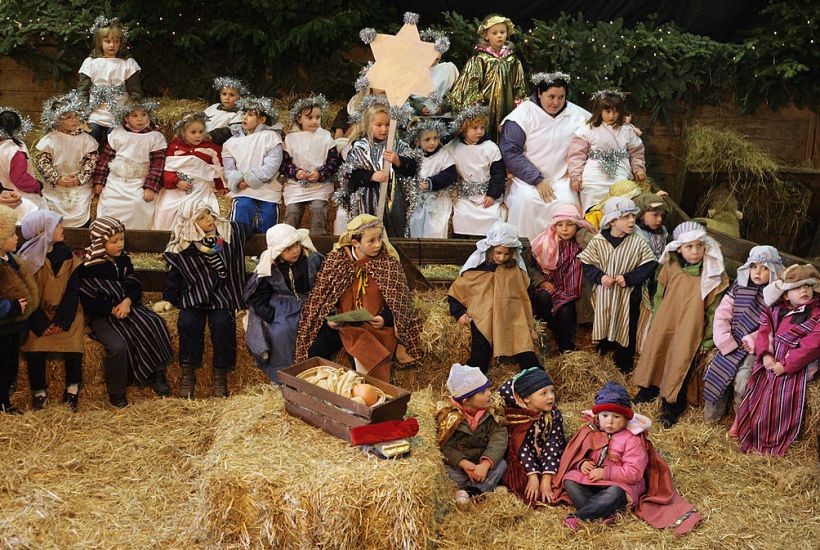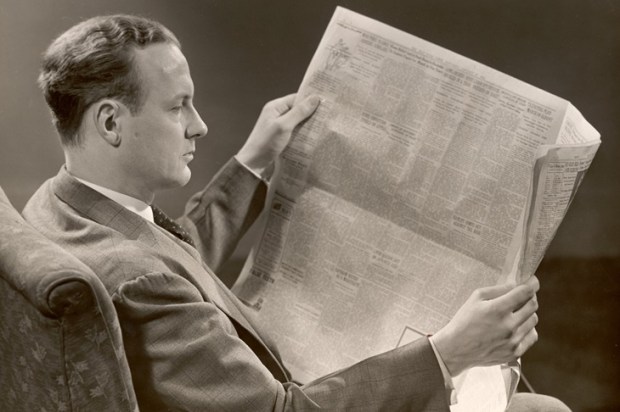Education Department officials in Queensland have decided that primary school students can’t talk about Christianity or even give Christmas cards because this is “evangelism” and creates an unsafe environment. Yes, really. This policy, which officials admit is unsupported by any statute or regulation, has the smell of totalitarianism. No bible stories or Jesus-related chats in the school yard, no Christmas cards mentioning Jesus. It also has the smell of discriminatory bigotry. It doesn’t apply to discussion about Islam, Judaism, or Hinduism, politics or terrorism nor does it affect greetings, cards or gifts celebrating Hanukah, Ramadan or Diwali – it just targets Christianity and Christian students.
There are many problems with this. One is the policy curtails human rights of some students based on a discriminatory and bigoted attitude against religion. It attacks the freedom of speech and religion of one group of students in primary state schools because talking about Christianity or cultural practices like Christmas cards creates “an unsafe environment”. Come again? It is not immediately clear how Christian students who talk about Jesus healing lepers and give baby in the manger Christmas cards pose a material threat to the safety of other students.
Indeed, even if the aim of this bizarre policy was mere inclusiveness, the double-standard is bleedingly obvious. How can you increase inclusiveness by excluding selected people? It doesn’t make sense. How does a Christmas card make someone feel like an outsider at a state school? It doesn’t. But not being allowed to speak about what they did on Sunday morning might make some students feel a little excluded.
Secondly, the policy is doubly discriminatory. First, only religious speech is banned for being “unsafe” – what about political speech? Second, only Christian students are prevented from talking about their faith or whether they attended a place of worship on the weekend or giving cards with Christian messages. Muslim and Jewish and Hindu students can talk about their religions – about Ramadan and Yom Kippur and Diwali – and rightly so – but why not Christians? The Education Department bureaucrats say Jesus is out and Mohammed can stay.
The third problem is that this policy is issued and enforced without legal support by unelected bureaucrats. Mark Fowler, an expert in religious and charities law, recently noted during a commonwealth parliamentary inquiry into religious freedom that this scenario is one covered by the common-law right to religious freedom. Common-law rights can be overridden by parliament but not by the whim of bureaucrats.
Fowler further noted that in the particular case in question, the executive arm of government was making policy; all while admitting that there were no legal grounds to do so. Fowler said, “the policy itself expressly acknowledged there was no groundings under statute or under regulations, but they then took a position anyway.”
In addition, the policy appears to contravene the Queensland Anti-Discrimination Act, which says in s.39 that an educational authority must not discriminate by treating a student unfavourably in any way in connection with the student’s training or instruction because of a protected attribute such as the student’s religious beliefs or activity. Parents or students affected by this policy therefore seem entitled to bring a discrimination complaint against the Department or a teacher or principal who implements the policy.
So, unelected bureaucrats, acknowledging that they don’t have legal support for their policy, are engaged in a remarkable curtailment of what would be considered normal, everyday speech, in the name providing a “safe” and “inclusive” environment. The irony could hardly be more resounding. These schools will be “safe” and “inclusive” for whom? Obviously not students who want to share their Christian faith with others.
Will the next step be to place the same draconian restrictions upon Muslim, Jewish, or Hindu students? What about those students who support controversial political, ethnic or scientific worldviews? If education bureaucrats want to play God in controlling primary school student speech, it might be quicker if they just told students which are the officially approved parts of their lives and beliefs they can share at school.
Mark Sneddon is Executive Director of the Institute for Civil Society.
Got something to add? Join the discussion and comment below.
Got something to add? Join the discussion and comment below.
Get 10 issues for just $10
Subscribe to The Spectator Australia today for the next 10 magazine issues, plus full online access, for just $10.


























Comments
Don't miss out
Join the conversation with other Spectator Australia readers. Subscribe to leave a comment.
SUBSCRIBEAlready a subscriber? Log in